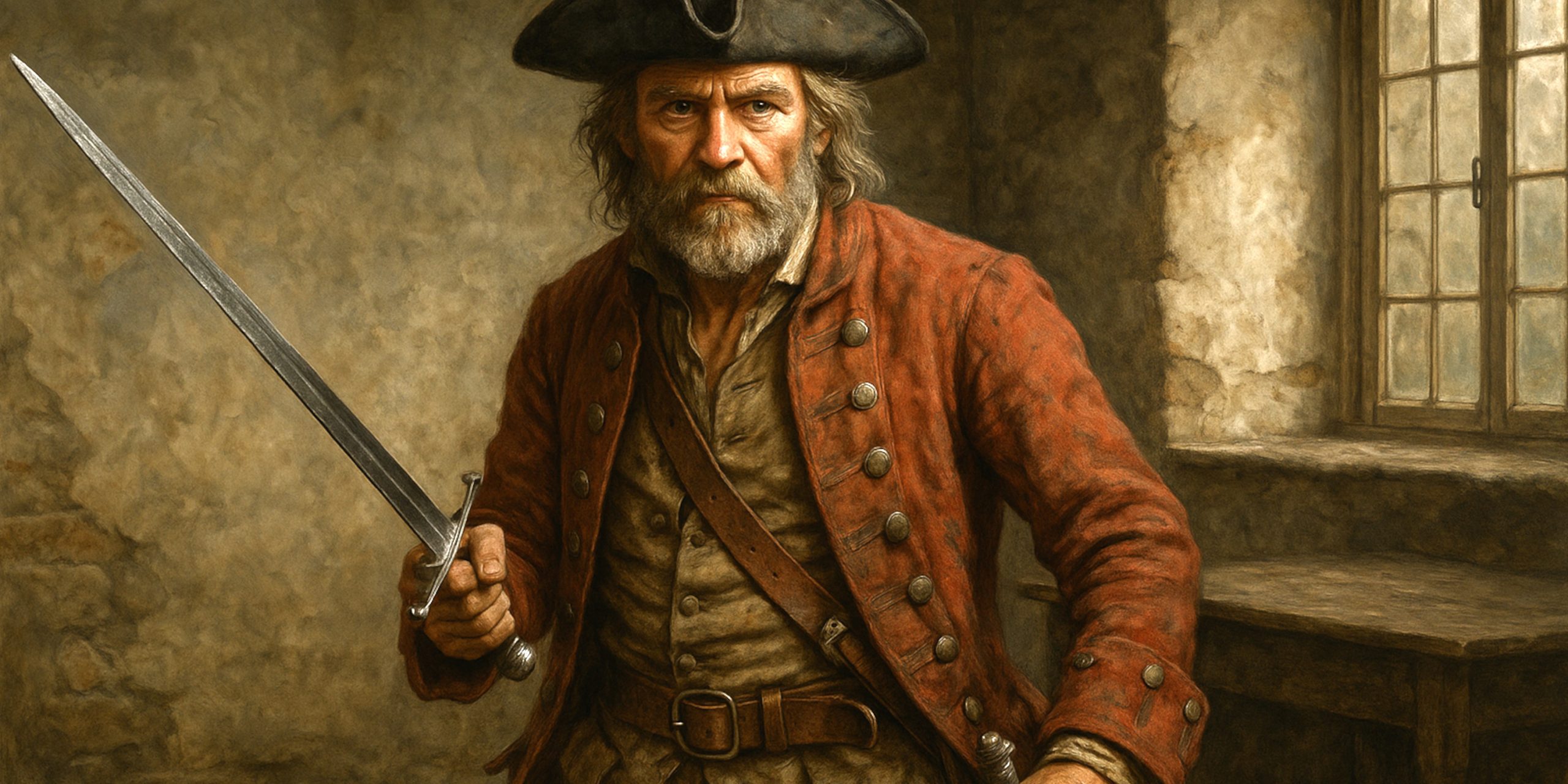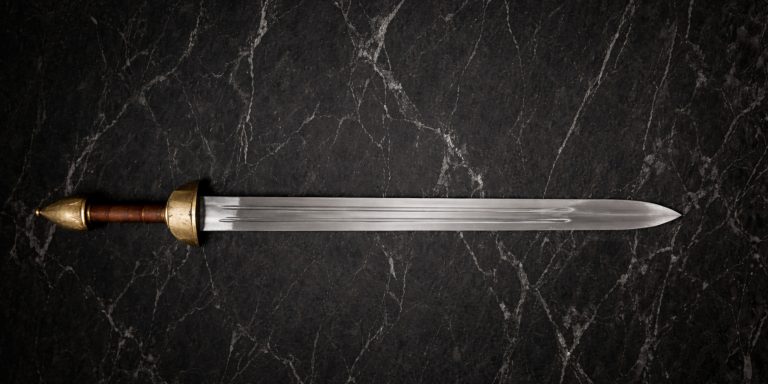
Donald McBane’s life reads like a series of tavern tales told after too much ale. Born in Inverness in 1664, he fought across Europe as a soldier, survived more duels than seems reasonable, brawled in brothels, and risked his life in public prize fights. Unlike most of his peers, he lived long enough to write it all down in The Expert Sword-Man’s Companion (1728), giving us a first-hand look at the bloody business of soldiering and swordsmanship in the early modern world.
Early Life and Soldiering
McBane grew up in the Scottish Highlands where options were limited. He chose soldiering, which meant gambling his life in the Nine Years’ War and the War of the Spanish Succession. He marched and fought under the Duke of Marlborough and saw action at Blenheim in 1704, where thousands fell.
His memoir makes clear that the daily reality of soldiering was less about battlefield glory and more about scraping together food, coin, and enough luck to dodge a musket ball.
Duels, Brawls and Prize Fights
McBane was as busy off the battlefield as on it. He fought in duels for money, for honour, and sometimes simply for survival. He also entered the vicious world of prize fighting, where swordsmen clashed before cheering crowds.
Famous Duels and Fights – A Timeline
- c.1687 – Brothel Fight in the Netherlands
McBane intervened in a quarrel and ended up duelling three men at once. He crippled one, killed another, and sent the third running. It was not the last time wine, women and violence mixed freely in his life. - 1690s – Duels with Fellow Soldiers
He clashed regularly with comrades-in-arms over insults, debts, or cheating at cards. McBane notes these as almost routine, the occupational hazard of being a soldier with a short temper. - 1700s – The Professional Duellist Challenge
A notorious killer challenged McBane in a formal fight before an audience. McBane took cuts but held his ground, disarmed his opponent, and walked away with his life (and reputation) intact. - c.1705 – Prize Ring Matches
McBane claimed to have fought over thirty-six prize fights. In one particularly brutal day he fought several bouts back-to-back, barely able to stand, yet still collected his winnings. - Later Career – Public Contests in London and Abroad
His reputation carried him across European cities where duelling schools and public combats were fashionable. McBane thrived on the danger, always just one mistake away from death.
The Expert Sword-Man’s Companion
In 1728, McBane set down his experience in The Expert Sword-Man’s Companion. The book is part fencing guide, part survival manual, and part confession.
- Fencing Instruction: Clear descriptions of guards, thrusts, and counters, written with the practical eye of someone who had used them for real.
- Autobiography: Anecdotes from campaigns, duels, and taverns. Told without pretence, they give us the soldier’s view of war rather than the general’s.
- Tone: Blunt, practical, and occasionally darkly humorous. Less “art of defence” and more “this will stop you from being skewered.”
Legacy
Donald McBane has become something of a cult figure among historians and martial artists. His memoir is one of the rare surviving accounts of a working soldier-duellist who combined battlefield experience with fencing theory.
Today, his manual is studied by Historical European Martial Arts (HEMA) practitioners who appreciate its brutal honesty. It is not polished, courtly fencing. It is the system of a man who spent a lifetime making sure the other fellow fell down first.
The Seven Swords Takeaway
Donald McBane was no gentleman duellist in silk stockings. He was a soldier, a gambler, a brothel brawler, and a prize fighter. He was also a survivor, who lived long enough to turn his scars into instruction for the next generation. In an age when many sword masters ended up forgotten or buried by their own students, McBane left us his words. For that alone, he deserves to be remembered.
Watch the documentray:



